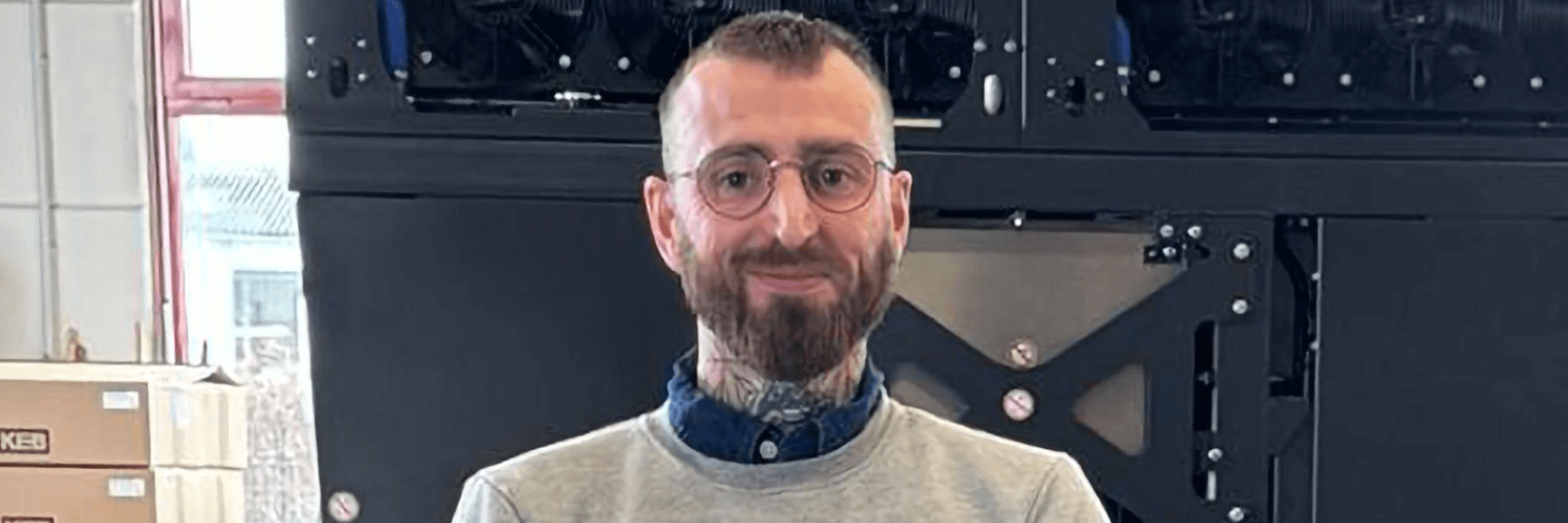I’ve worked in places that I didn’t think automotive could take me.

I left school with no GSCE’s and originally wanted to go into the army, but I ended up getting an apprenticeship in automotive instead. I started MOT testing before going on to specialise in HGVs. Since then, I have travelled all over Europe fixing trucks, even extending to working on yachts in Monaco as these have the same specialist engines and electrics as trucks. This was an amazing opportunity, and I didn’t think working in automotive could take me there. Other highlights include not just working on, but also writing software for other specialist vehicles, such as ones with robotic arms, worth up to $11 million in retail value.
Now, I am a Commercial Vehicle Lecturer at South and City College Birmingham. Recently I have also become a Lecturer for Fuel Cell Technology too, which encompasses hydrogen technology. We have just purchased a €1m hydrogen vehicle for students to work on, which is another amazing career highlight, making sure the next generation of talent are at the forefront of new technology.
I also have started a YouTube channel CAN Diagnostics to help young engineers who find it difficult to get information since some manufacturers or garages keep their information close to their chest. The channel focuses on things like fixing electrical faults and it has been quite successful.
There was a massive misconception years ago that people who aren’t intelligent would end up being a mechanic or with a career in automotive. This isn’t the case now, with so much technical knowledge required for working on things like electronics.
Other misconceptions are that the industry is full of ‘grease monkeys’ or that women can’t work in garages. I would love to see more women in the industry and help break down those gender barriers that result in them avoiding it. The industry definitely isn’t as dirty or as grimy as it used to be.
Another misconception that I have heard from women, is that an apprenticeship in HGV will be too physically challenging for them, such as things being too heavy to lift. But the culture has changed so much over the years in terms of health and safety regulation. There is equipment, tools, and support, which remove these perceived barriers. I believe that there should be nothing stopping women believing that they can apply for an HGV apprenticeship. My engineers are my engineers, I don’t separate to men and women, I just genuinely want the best for all of them and I’m trying to knock those barriers down.
In addition to gender or physical barriers, I believe that there shouldn’t be any mental barriers either. I have ADHD and dyslexia and I don’t see these as obstacles to working in automotive, you can accomplish anything if you work hard enough.
Another misconception is that automotive pay is low. This isn’t the case for HGV, Year One Apprentices are earning £12.00 an hour, well above the national minimum wage for apprentices at £5.28 an hour. The industry is constantly moving forward and is at the cutting-edge of technology.
I think my biggest piece of advice is that apprenticeships are key. If you can get one, that is the single best way to get hands-on experience. I also always encourage my students to take learning outside of college. It is important to take responsibility for your own learning, by reflecting on what you have learnt that day or practicing in your own time what you have learnt in the classroom.




